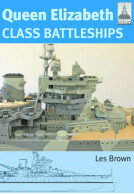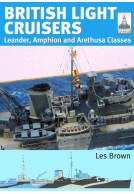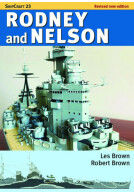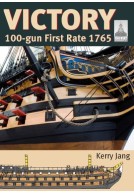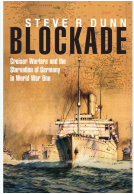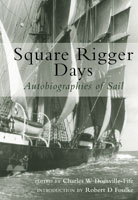Royal Navy Torpedo Vessels (Hardback)
1870 - 1914

Pages: 192
Illustrations: 200 b/w, 8-page colour
ISBN: 9781399022859
Published: 2nd February 2023
(click here for international delivery rates)
Need a currency converter? Check XE.com for live rates
| Other formats available | Price |
|---|---|
| Royal Navy Torpedo Vessels ePub (37.0 MB) Add to Basket | £19.99 |
The self-propelled or locomotive torpedo was probably the greatest game-changer in the history of naval warfare. For the first time the largest warship could be sunk by a weapon carried by the smallest, and most navies were quick to see the potential. Although the 19th-century Royal Navy had a reputation for technological conservatism, it was an ‘early adopter’ of the torpedo and was instrumental in the development of the small fast craft that became the delivery system of choice, the steam torpedo boat. Britain’s most important contribution to torpedo warfare, however, was the invention of its antidote, the torpedo boat destroyer, or ‘destroyer’ as it came to be called. This often-told story has overshadowed the earlier but no less significant history of the torpedo boat itself in the Royal Navy, an injustice set to right by this new book.
Torpedoes were derived from earlier underwater explosive devices – mines, spar and towed torpedoes, and the like – so the first chapter briefly reviews their history before moving on to Robert Whitehead’s revolutionary invention that made the self-propelled torpedo a practical weapon. The Admiralty was so impressed it purchased the rights to Whitehead’s device, and thereafter the Royal Navy made much of the early running in torpedo boat design. In this they were greatly assisted by existing boatbuilders like Thornycroft and Yarrow who already specialised in small fast craft.
The core of this book is a detailed developmental history of British torpedo craft, from the early experiments like Vesuvius and Polyphemus, through the 1st Class TBs to the so-called Coastal Destroyers of the early 20th century. There are also separate chapters on 2nd Class boats, on Torpedo Gunboats and on the ‘Torpedo Depot Ships’ Hecla and Vulcan. The book concludes with a number of appendices devoted to background issues like quick-firing guns and reports on performance of the boats in various circumstances.
As it fills a surprising gap in the technical history of British warships, this book will be welcomed by naval enthusiasts, modelmakers and historians.
"With comprehensive appendices covering associated topics such as performance reports, QF guns and Aluminium Torpedo boats, a bibliography, index and a colour plate section this is an important work that fills a surprising gap in the technical history of British warships, this book will be welcomed by naval enthusiasts, modelmakers and historians."
Martin Willoughby, The Wessex Branch of the Western Front Association
Packed with illustrations, photographs and line drawings that provide visual context to complement the technical account, this is a very detailed book.
Naval Review
Read the Full Review Here
EDITORS CHOICE
The Armourer - June 2023
"It's fascinating reading."
Competition as featured in
The Armourer, May 2023
"One of the major lessons from the book is the complex and painstaking process involved in developing an effective system around a new technology weapon and its employment in an effective manner."
Australian Naval Institute
Read the review here
The author spent his working life with the warship builder Vosper Thorneycroft as well as having a keen modelling interest. I learnt a lot from this one, another excellent addition to the range of naval themed books by Seaforth Publishing and one I thoroughly enjoyed.
Military Model Scene
Read the Full Review [link=https://www.militarymodelscenenew.com/book-reviews-1/Royal-Navy-Torpedo-Vessels%2C-1870-1914[ Here [/link]
The development of torpedo boats [not to be confused with the later destroyer category] by the Royal Navy and its shipbuilders has only received sketchy coverage up to now. This book by Les Brown redresses that splendidly.
Nigel Denchfield, IPMS Battleship Group
It begins with the early experiment vessels, moves on to the ‘first class’ TBs, then the ‘second class’ before winding up with torpedo gunboats and a look at the depot ships Hecla and Vulcan.
The story is told via builders reports, articles from engineering magazines of the time, trials reports and wealth of photographs and drawings. The magazine articles are particularly fascinating, and are a novel addition this type of book. The author has clearly spend a vast amount of time searching for all this information and the photographs are superbly chosen.
The book is produced on high quality gloss paper which enhances the photographs and drawings.
It is an excellent reference for ship enthusiasts of all types.
Featured in
International Plastic Modellers Society, Newsletter of the Small Warship Special Interest Group – Issue 140, March 2023
Featured in
Great War IPMS Newsletter, Cher Ami - December 2022
About Les Brown
LES BROWN spent his working life at the specialist warship builder Vosper Thornycroft so is particularly well-equipped to write this book. In addition, he is a leading light in the Small Warships Group of the IPMS and the editor of their newsletter. He is the author of a number of titles in the ShipCraft series, and also wrote the volume on Black Swan Class Sloops in Seaforth’s ‘Original Builders’ Plans’ series.








